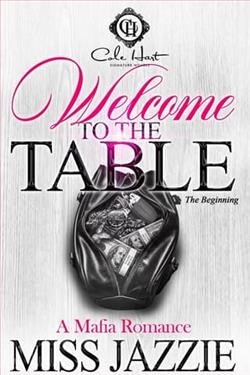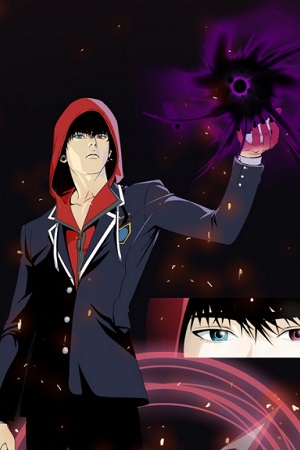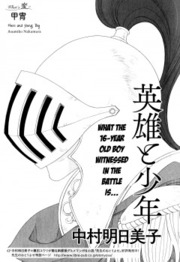
Welcome to the Table
by Miss Jazzie
In the dirty south of New Orleans, there’s no love in the streets, no loyalty when money’s at stake, and the hardest truth of all—a man’s weakness will always be a woman. Especially one with curves, brains, and beauty that could set the world on fire. Most wars in the hood? They’re fought over a woman. And Calliope, born into a notorious African American mafia dynasty, is about to find out just how true that is.
Calliope has spent his life running from the family legacy of violence, power, and control. But when his father goes into protection with an associate, Calliope is forced back into the very world he wanted no part of. Now, a war is brewing, and trust is as scarce as loyalty. Who will survive the storm, and who will fall?
Hellcat is a man willing to sacrifice everything for his family, even if it means hurting himself. But when he meets Raven, everything changes. A beauty who has him questioning everything. Will Raven break the ice around his heart, or will she make the walls thicker?
As Calliope finds himself lost in grief and thrust into the chaos of a kidnapping, he’s forced to face truths he’s been running from. Can he push past the pain to save what’s left of his family, or will grief destroy everything, including a love story waiting to unfold?
Their worlds collide in a fiery clash of resentment and desire, where every step closer feels like a betrayal of their own freedom.
.
Read
Welcome to the Table on http://kissnovel.net
Martial Peak Reviews
Miss Jazzie's Welcome to the Table is a gripping narrative set against the vibrant yet perilous backdrop of New Orleans. The novel delves into the intricacies of family, loyalty, and the often-destructive power of love. With its rich tapestry of characters and a plot that weaves together themes of power, betrayal, and redemption, this book is a compelling addition to the urban fiction genre.
At the heart of the story is Calliope, a character born into a notorious African American mafia dynasty. His journey is one of resistance and reluctant acceptance of his heritage. Calliope's character is meticulously crafted, embodying the internal conflict of someone torn between the desire to escape a violent legacy and the unavoidable pull of familial duty. His struggle is relatable to anyone who has ever felt the weight of expectations and the burden of legacy. Miss Jazzie does an excellent job of portraying Calliope's internal turmoil, making him a deeply sympathetic character despite his flaws.
The narrative is further enriched by the introduction of Hellcat, a man whose loyalty to his family is both his greatest strength and his most significant vulnerability. Hellcat's encounter with Raven, a woman who challenges his perceptions and emotions, adds another layer of complexity to the story. Raven is not just a love interest; she is a catalyst for change, pushing Hellcat to confront his fears and desires. The chemistry between Hellcat and Raven is palpable, and their relationship is a testament to the transformative power of love.
Miss Jazzie's portrayal of female characters is particularly noteworthy. Raven, with her intelligence, beauty, and strength, is a force to be reckoned with. She is not merely a pawn in the male-dominated world of the mafia but a player in her own right. Her presence in the story challenges the traditional gender dynamics often seen in similar narratives, offering a refreshing perspective on the role of women in such settings.
The themes of loyalty and betrayal are expertly woven throughout the narrative. In the world of Welcome to the Table, trust is a rare commodity, and alliances are as fragile as they are necessary. The tension between personal desires and familial obligations creates a dynamic and often volatile environment. Miss Jazzie captures this tension with precision, creating a sense of impending doom that keeps readers on edge.
One of the most striking aspects of the book is its setting. New Orleans, with its rich cultural heritage and tumultuous history, serves as the perfect backdrop for this tale of power and passion. The city's vibrant streets and shadowy corners are brought to life through Miss Jazzie's vivid descriptions, immersing readers in a world that is as beautiful as it is dangerous.
In comparison to other works in the urban fiction genre, such as Sister Souljah's The Coldest Winter Ever or K'wan's Gangsta, Welcome to the Table stands out for its nuanced character development and intricate plot. While both Sister Souljah and K'wan explore similar themes of power, loyalty, and survival, Miss Jazzie adds a unique twist by focusing on the internal struggles of her characters and their quest for identity and redemption.
The novel's pacing is well-balanced, with moments of intense action interspersed with introspective passages that allow for character development. This balance ensures that the story remains engaging without sacrificing depth. The dialogue is sharp and authentic, capturing the essence of the characters and their environment.
However, the book is not without its flaws. At times, the plot can feel convoluted, with multiple storylines vying for attention. While this complexity adds to the richness of the narrative, it can also be overwhelming for readers who prefer a more straightforward storyline. Additionally, some readers might find the depiction of violence and crime unsettling, though it is an integral part of the story's authenticity.
Overall, Welcome to the Table is a powerful exploration of the human condition, set against the backdrop of a world where love and loyalty are both a blessing and a curse. Miss Jazzie has crafted a story that is as thought-provoking as it is entertaining, offering readers a glimpse into the complexities of life in the "dirty south" of New Orleans. For those who enjoy urban fiction with depth and heart, this book is a must-read.
In conclusion, Miss Jazzie's ability to blend action, emotion, and social commentary makes Welcome to the Table a standout novel in its genre. It is a story that resonates long after the final page is turned, leaving readers to ponder the true cost of power and the enduring strength of love.
























Reviews 0
Post a Reviews: